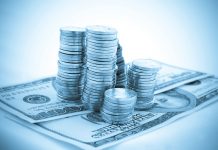Thailand avoids recession
Thailand’s economy grew by a mere 0.9 percent in the second quarter of this year, on a seasonally adjusted basis, according to data compiled by the National Economic and Social Development Board (NESDB). This led the NESDB to reduce its full year growth forecast for gross domestic product (GDP) to between 1.5 and 2.0 percent. This is down by 0.5 percent on its original forecast.
The figures meant that Thailand has avoided slipping into a recession (which is usually defined as two consecutive quarters of negative GDP growth), but full recovery is still some time away. On an annual basis, the economy grew by 0.4 percent from a year earlier.
Analysts note that exports equal more than 60 percent of the economy and so any kind of real growth depends on increasing shipments. In the second quarter, exports rose just 0.6 percent from the same time in 2013 and factory output dropped five percent.
Nonetheless, the Bank of Thailand believes there can be a strong so-called V-shaped rebound, predicting GDP growth to reach 5.5 percent in 2015. The problem with this positive outlook is the continuing high level of household debt and the struggle to increase exports. Other analysts are less sanguine, believing Thailand’s economy is set for far more modest growth.
As an economist with Credit Suisse in Singapore noted, for the economy to grow like that, Thailand will need to expand at nearly nine percent in the second half. That is a demanding number “especially when you don’t have that many of the strong, positive catalysts this year.”
Of course, government spending is now back on track after being largely halted during the political crisis of the early months of this year, but even the surge from this takes time.
As the NESDB said, growth in the second quarter came from government expenditure, private consumption and exports, while private investment declined. The slump in tourism, an industry which accounts for around 10 percent of GDP, has eased. In June, tourism was down a massive 24.4 percent from the same time the previous year, but in July the drop was 10.9 percent, still significant, but a clear indicator that the slide following the 22 May coup had been significantly arrested.
The NESDB said the second half will show growth due to improved confidence and the return of budget disbursements to normal. Even so, overall consumption remains subdued, auto sales have dropped dramatically, and exports are sluggish.
Although various analysts have widely differing views on the strength and the level of the economic situation in Thailand, one aspect they are all agreed on is that the economy has avoided a recession and looks set to bounce back. It’s just the strength of that bounce back that is in question.








